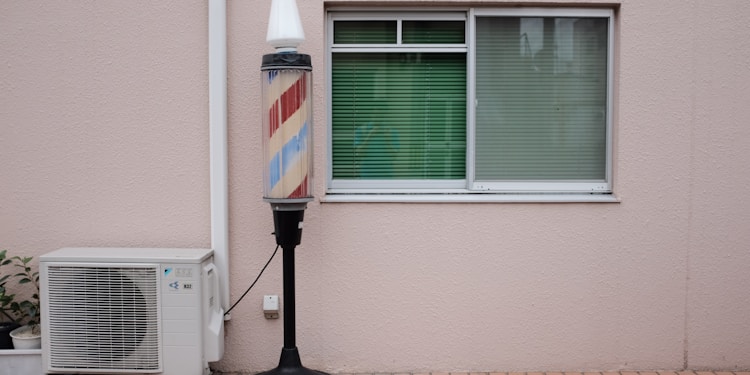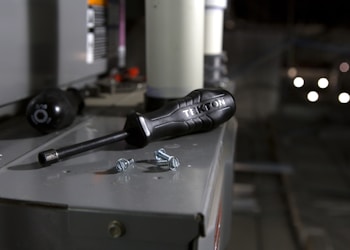Freon is a vital component of the cooling process of an ac system. It is a type of refrigerant that air conditioners use to achieve and maintain cooler temperatures in residential properties, offices, buildings, and practically any indoor area. Freon flows in the coils of your ac, extracting and absorbing the heat from within the house and releasing it outside through the condenser, cooling your home.
There are times when you notice that your ac is taking too long to cool your house. When this happens, among other possible causes, low Freon levels could be why your ac no longer cools your house efficiently. The lower the Freon levels, the lower the heat absorption rate, and thus the warmer your indoor temperature.
An ac unit generally comes with enough Freon to last its lifetime. It is made in such a way that it should never need more Freon. The Freon flows within enclosed coils, ensuring that it never pours out. But because of damage to the refrigerant lines, the Freon leaks out, causing your ac to run low on Freon, reducing its cooling efficiency.
To replenish your AC Freon reserves, visit https://andersonair.com/service-areas/fayetteville/ for professional and safe HVAC servicing.
Since Freon is concealed within the coils, how do you know if your ac needs Freon? Here is how:
It takes your ac longer to cool your house
How do you know if your ac needs Freon?
If your ac is taking longer than usual to cool your house, your ac Freon levels could be very low. And low amounts of Freon absorb and disperse heat at a slower rate, increasing the time it takes to cool your house to the desired/set temperatures.
Presence of ice on the refrigerant lines and ac
How do you know if your ac unit needs Freon? Ice on any part of your air conditioner can also be a sign that the Freon level of your ac is low.
When the refrigerant is too low, it causes the temperature of the Freon to drop below the required design temperatures. And when the refrigerant becomes too cold, it causes ice to form on the refrigerant lines and evaporator coil and also causes the condensed water vapour in the air to freeze.
If this continues without rectification, it can severely damage your ac unit. To avoid this, call your HVAC technician immediately if you see ice on the Freon lines.
Hissing sound when your ac is not running
Usually, Freon leaks silently. But there are those times when you hear a bubbling or hissing sound, most especially when the ac is off. This loud sound is a signal that there is a large refrigerant leak in the refrigerant line. Call your HVAC technician when this happens.
A hissing sound signifies that the Freon is leaking in gas form. On the other hand, a bubbling sound means that it’s escaping in liquid form.
Higher energy bills
How do you know if your ac needs Freon? An increase in your monthly energy bills may be a sign.
Freon leaks make the ac run longer than usual, which increases energy consumption, hiking your monthly electricity bills.
When your ac is low on Freon, it cannot sufficiently cool your home. This causes the thermostat to signal to the ac that the low preset temperature hasn’t been achieved. And this causes the ac to run for a longer time than usual, causing a spike in electricity bills.
Warm air is coming out of your vents
If your airflow is fine, but your home isn’t cool, your ac problem could be refrigerant-related. Without Freon to absorb the heat from the air that your ac sucks in, your ac will end up releasing warm air instead of cold air through its vents.
When your soap test turns positive
How do you know if your home ac needs Freon? When the soap test turns positive.
If you suspect a Freon leak in your ac system, use the soap test to prove that it is indeed a Freon leak. You can do so by putting a solution of soap and water along the refrigerant lines or any place where you suspect a leak to be. You will see bubbles if the Freon is escaping.
Note: The soap test is practical only with a continuous Freon leak.
Use an electronic refrigerant leak detector
An electronic detector (sniffer) can signal you when it sniffs out a leak. It emits a noise or displays a visual indicator if it detects a Freon leak. It is an efficient way of ensuring that a Freon leak is the cause of your ac inefficiency.
Downsides of a Freon leak
When your checks establish that your ac is suffering from a Freon leak, immediately contact an HVAC professional to recharge your ac Freon levels. If you don’t, Freon will damage your compressor and ac
If the Freon leaks and ends up flowing back into the outdoor components of the ac unit, it will permanently damage the ac compressor. Compressors don’t come cheap, so buying a new air conditioning unit might be better if yours becomes damaged. You
Should you recharge the Freon yourself?
Although replenishing your ac Freon supply sounds easy, you are not advised to do it. Freon is dangerous to human health, and few homeowners know how to handle it and carry out the recharge process successfully.
So, call a professional to avoid any mistakes (ensure refrigerant safety) and prolong your air conditioning system’s lifespan.
Conclusion
Hire the services of a professional for all your Freon needs for safety and efficiency purposes.
Note: Recharging the Freon levels alone is not enough. If your ac is low on Freon, it has a leak somewhere. So recharging alone won’t do because the Freon will leak again.
So get a professional HVAC technician who knows the scope of work to do, who will tell you that you have a Freon leak and fix the leak for you. To ensure that the professional fixes the leak, he should;
- Remove or evacuate all the Freon from the ac system
- Find and fix the leak
- Test the mend/fix
- And refill your ac with the proper amount of refrigerant.













